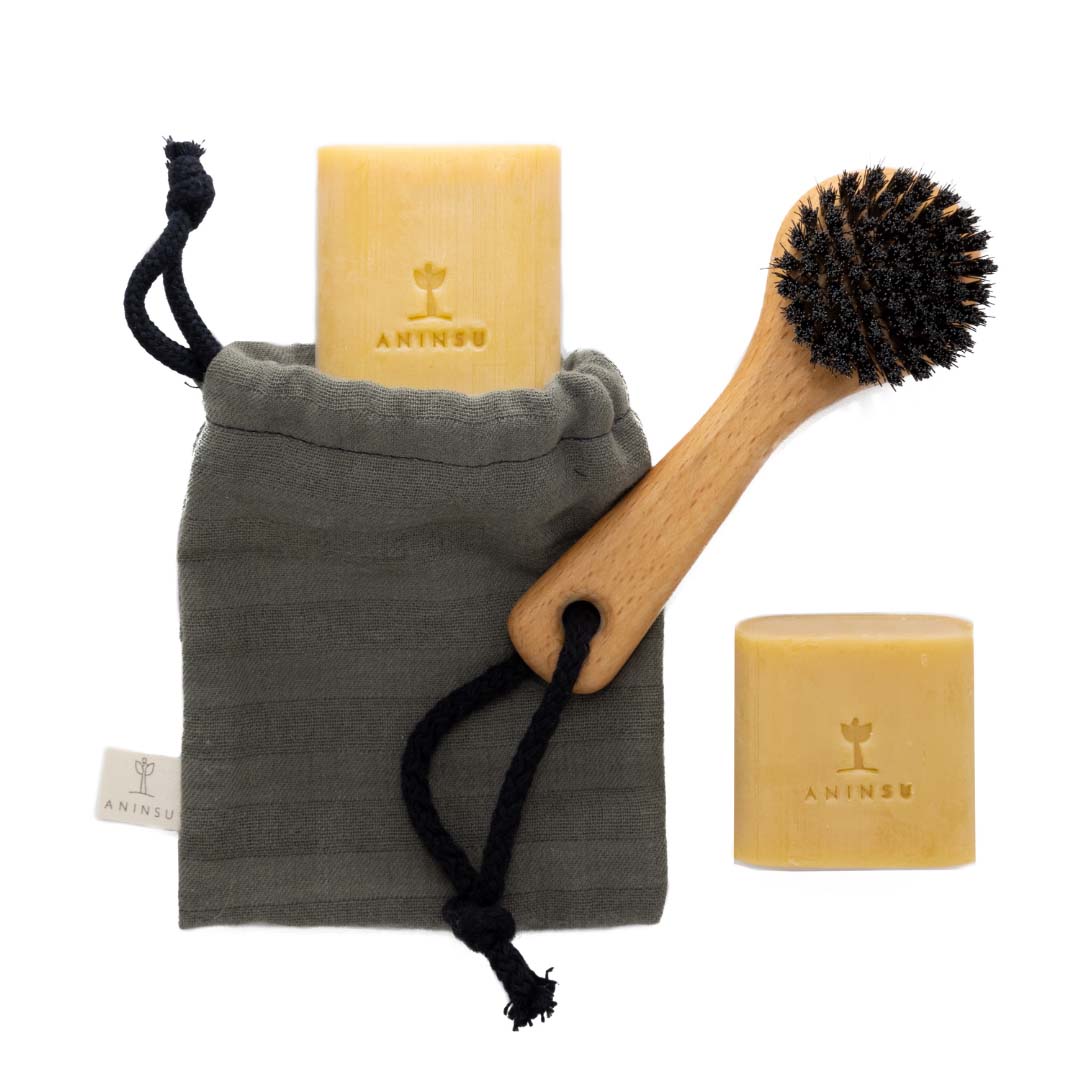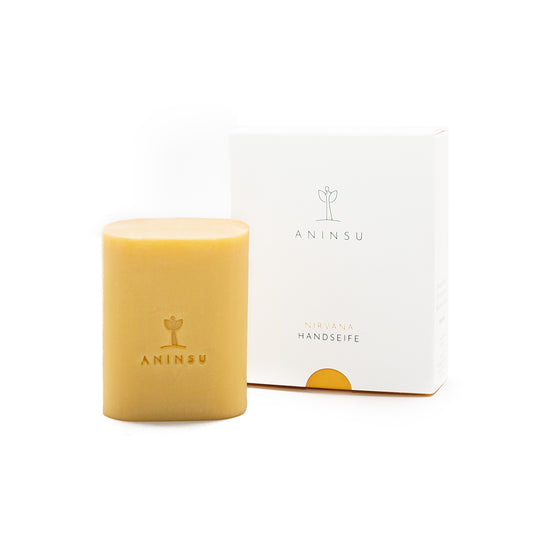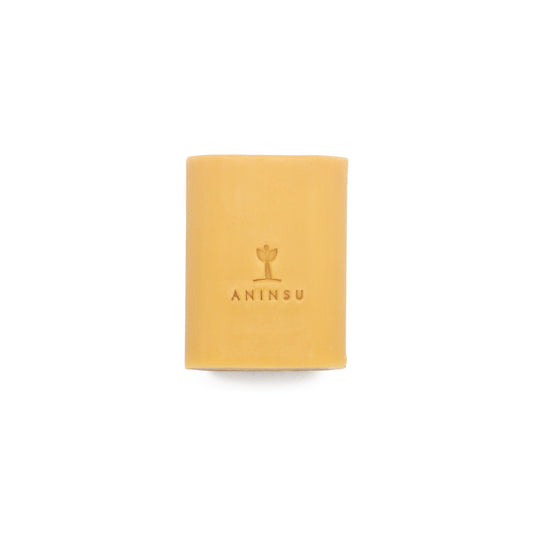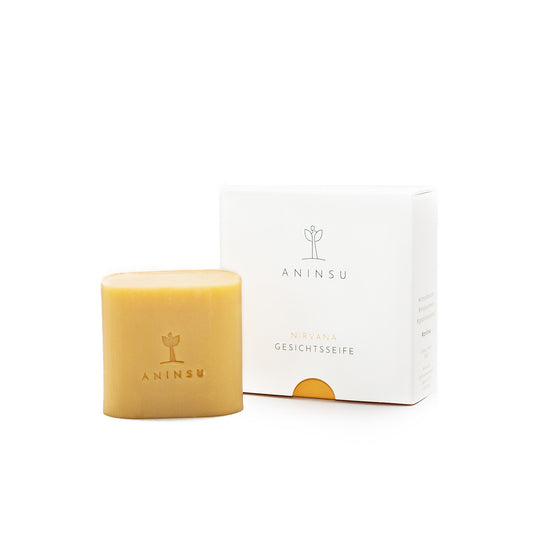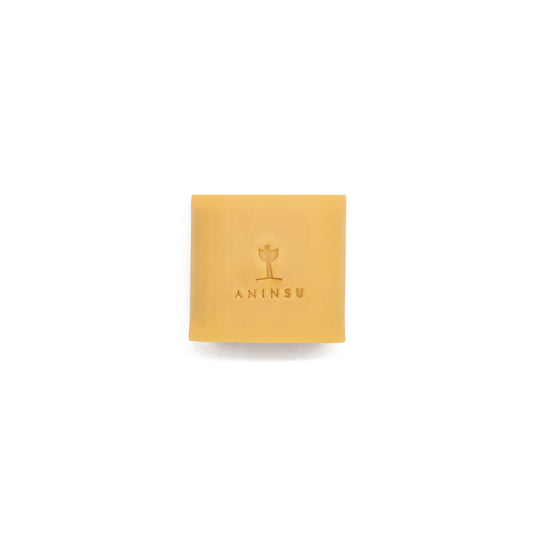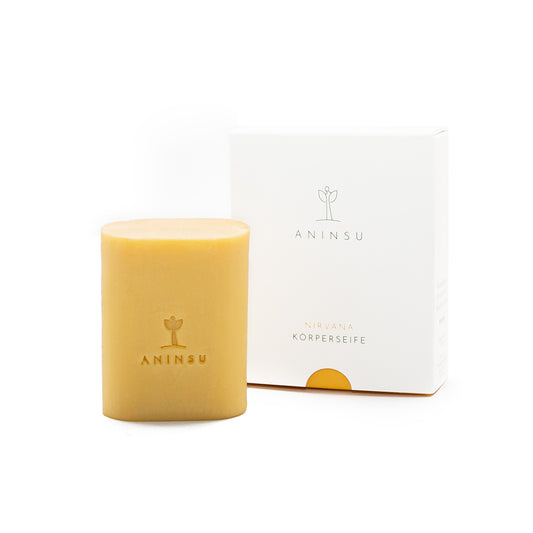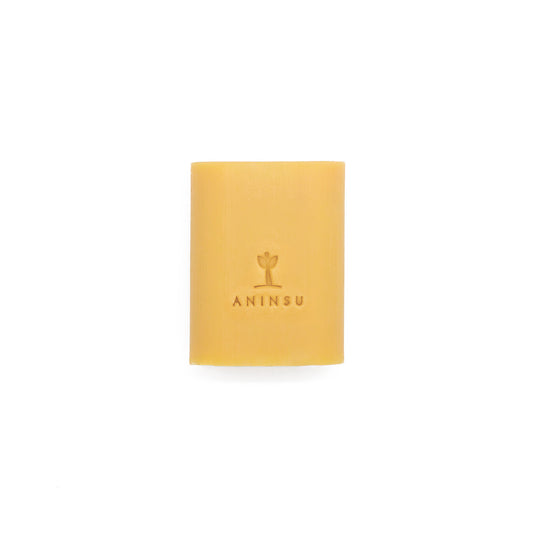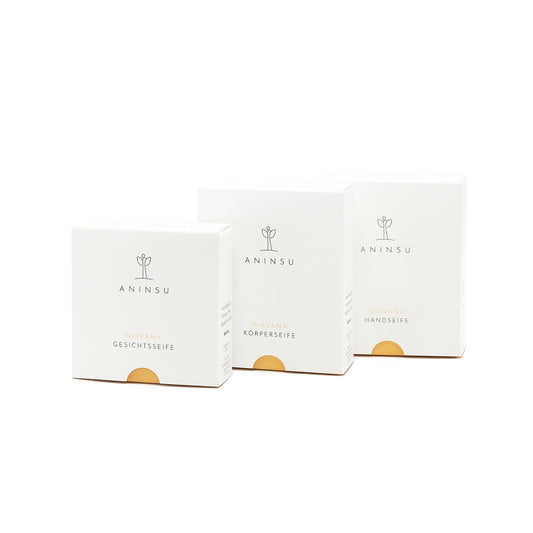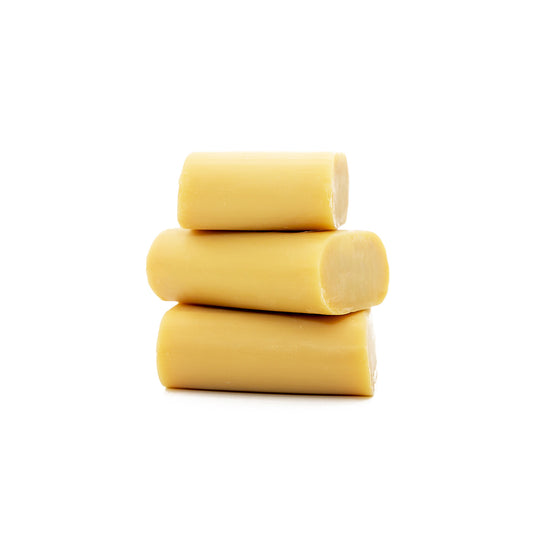Like many other things, soap is part of human history. Today, when you think of this term, you primarily think of hand washing, although it can basically be a great care product.
Solid or liquid?
Our recommendation is clearly in the direction of solid natural soaps. On the one hand, they come with less and more sustainable packaging than liquid soaps, thus saving unnecessary plastic waste and they are usually more economical. They also have the advantage that they don't have to be put in the liquid bag when you travel, so you save valuable space there for your other products. Of course, this applies to all solid care products, from solid showers or body soap to solid shampoo.
Natural soap or conventional soap?
We can only recommend that you use natural cosmetics, in this case natural soap. We are by no means of the opinion that natural products are always and always better than synthetic ones. And yes, conventional soap, which costs little, has a completely different cost point that is easy to overlook: it is usually absolutely incomprehensible where the ingredients come from and why there are sometimes things in them that you don't really need and/or don't wants on his skin. You want to be sure that the substances used in your soap are all actually good and useful. Especially when you buy from smaller suppliers, you usually also have the opportunity to get detailed, meaningful answers to your questions. Quite apart from the fact that these retailers and brands often buy and produce regionally as far as possible.
Certified natural cosmetics or rather not?
Of course, we recommend that you buy certified products. At the same time, there are also many small suppliers who produce handmade natural soaps that have no certificates and still offer great products. In any case, if you are not sure about a product, ask and have your concerns dispelled or change your mind. In addition to a great product, it is also important that you feel comfortable with it.
Vegan or not?
From our point of view, there is absolutely no reason to use non-vegan soaps. "Milk & Honey" etc. may all be nice and maybe smell nice (although that's a matter of taste), but we clearly find that questionable. There are more than enough alternatives and animal ingredients are simply unnecessary in soaps. However, not all natural soaps are vegan, so it is always best to look out for or ask about vegan certification. Don't blindly trust handwritten endorsements or vegan signs made by brands, because people can be wrong. We have e.g. For example, I have seen a sheep's milk soap that was declared vegan and when I asked, it turned out that the retailer thought vegetarian and vegan were the same thing, namely a synonym for "natural" ...
It depends on the ingredients
Most natural soaps do without ingredients that are not absolutely necessary. Nevertheless, questionable ingredients can also creep in there, e.g. B. palm oil, which has fallen into disrepute because of its production, or sulphates, ie more aggressive cleaning substances. Always check the ingredient information. If you don't understand something, ask or search the internet. If you choose a product with palm oil, it should at least be organic palm oil. But it definitely works without, as our soaps show. Other caring ingredients are also useful, e.g. B. Organic oils, because the more care our heavily stressed skin gets, the better.
Overgreasing
A point that should not be neglected with soaps is overgreasing. This is the part of the oils that is not completely saponified and acts as an additional caring component of the soap. And that can make a very big difference. Hand soaps should have an overgreasing of 3-5%, our Nirvana hand soap is 4%. Admittedly, it is unfortunately not common to claim overgreasing, so please ask, because a hand soap with no or too little overgreasing is definitely less caring and this can be clearly noticeable, especially with frequent hand washing, from feelings of dryness to dry skin areas.
Shape
Rounded edges and handy sizes ensure a better grip on soaps. A larger, because somewhat cheaper soap, but which at some point you get annoyed by having to saw into two parts at home, or a square one that looks chic but feels super unusual in the hand, are not necessarily to be recommended. Don't let yourself be impressed by the look, because not everything that looks fancy is funky in practice.
Colour
Soaps can have different colors due to their ingredients. Our Nirvana hand soap , for example, is yellowish because of the turmeric it contains. But to be honest, this is rather the exception, because often there are simply dyes behind different colors. There are absolutely natural ones that are also used in natural cosmetics and are harmless. But they are not necessary. You can recognize them in the list of ingredients by the prefix "CI".
Scent
One hears more and more often that fragrances in cosmetic products are unnecessary and often contain allergens. Both are not wrong, but they are not always right either. First of all, quite objectively: yes, we can confidently do without fragrances. At the same time, the pure smell of soap is rather boring for most, which is the main reason for using fragrances. And to the allergens: from our point of view, the complete avoidance of allergens only makes sense for allergy sufferers. For non-allergy sufferers, the famous motto has always applied: everything in moderation. Incidentally, there are quite a few fragrances without allergens, but the list is manageable and not particularly exciting in terms of fragrance. From our point of view, a pleasant scent is important for a product like soap, because it can make the difference between "annoying activity" and "pleasant experience" in use. Fragrance in general can evoke memories, inspire and even stimulate other senses. So why give it up when you don't have to?
Conclusion
From our point of view, the best choice is a solid hand soap with vegan and natural cosmetics certification, top ingredients and appropriate superfatting. Dyes are not necessary, but a pleasant scent can make a world of difference. When it comes to the shape, we always recommend rounded edges, as they are simply more comfortable in practice.
